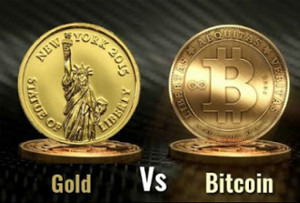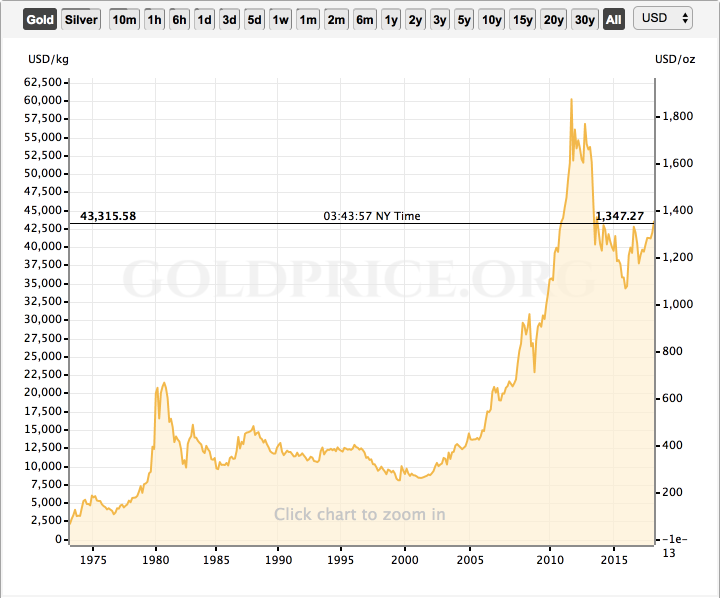Bitcoin will not be a new digital money: about the drug business, transaction costs and gold
 The last publication dealt with the function of money and why a limited issue prevents Bitcoin from becoming new money. In the comments many times expressed the opinion that Bitcoin is digital gold, and not money. In the articulated paradigm of the crypt, Bitcoin will remain cryptocurrency with a huge transaction fee, high cost and will be stored, and not try to pay them in the store. For calculations, cryptocurrency will be used devoid of the disadvantages of bitcoin. I agree with the second paragraph, but I will analyze the statements from the first paragraph in this publication. Let's start with the story about the Silk Road platform, where all the trade was illegal and prohibited. We will look at a real-life example of how Darknet helped popularize bitcoin, compare the bitcoin network with Visa / Mastercard to make payments, and analyze where the mined and already mined gold goes.
The last publication dealt with the function of money and why a limited issue prevents Bitcoin from becoming new money. In the comments many times expressed the opinion that Bitcoin is digital gold, and not money. In the articulated paradigm of the crypt, Bitcoin will remain cryptocurrency with a huge transaction fee, high cost and will be stored, and not try to pay them in the store. For calculations, cryptocurrency will be used devoid of the disadvantages of bitcoin. I agree with the second paragraph, but I will analyze the statements from the first paragraph in this publication. Let's start with the story about the Silk Road platform, where all the trade was illegal and prohibited. We will look at a real-life example of how Darknet helped popularize bitcoin, compare the bitcoin network with Visa / Mastercard to make payments, and analyze where the mined and already mined gold goes.The idea of making payments in favor of another person or organization and bypassing banking structures is simply excellent. Another 3-4 years ago, ideological users of Bitcoin led this argument first and filed as the main one. This feature allows you to bypass the embargo, to protect against blocking accounts by regulatory authorities, to create the imaginary security in the event of a crisis of the banking system. We add here the anonymity and the inability to cancel the transfer, and we get the perfect tool for transactions on the black market. It was Bitcoin that became the basis for the rapid development of Darknet and the chance to open Silk Road. Darknet is the Internet inside the Internet, protected from blocking, providing anonymity to users. In the open spaces of the darknet, you can find both innocuous forums and resources selling weapons, drugs, people, child pornography, passport data, stolen credit cards, etc. I even met the proposal of making a passport of Romania for $ 50,000, not a fake, as they wrote, but a real one and issued by the relevant authorities. Silk Road is the first resource inside the darknet for organizing drug trafficking, stolen data, credit cards and weapons. He took, naturally, bitcoin.
Worked shop had 2.5 years, after which the creator was arrested. It can be concluded from the reports of the special services that they arrested a technically illiterate person and little knowledge of anonymity. The detainee used his photo, the name on the forums, where he asked questions about ensuring anonymity on the Internet, rented a server for Silk Road to photoshop documents, and the cherry on the cake was an attempt to order a killer for a former, or partner, or employee. He was looking for a killer on the forums and there and went to the FBI agent. It seemed strange to me.
And now an interesting fact. When the authorities closed down Silk Road, the price of bitcoin dropped from $ 124 to $ 82 . For 2.5 years of operation of the exchange, its turnover amounted to 9.5 million bitcoins , and by this time only about 11.5 million bitcoins had been naminoeno. Professor Nicolas Christin from Carnegie Mellon University conducted a study, and according to his data, Silk Road alone generated 9% of all network transactions. Anyone who is interested in this subject recommend reading this study .
')
Silk Road is just one of the forbidden markets, but large. If we calculate the total turnover of the TOP-20 illegal sites of that time, then it will be equal to 25-30% of the total number of transactions.
Now everyone is trying not to mention the dark past of Bitcoin and do not want to associate its popularity and growth with the black business. However, 900,000 users of Silk Road alone were forced to exchange dollars and euros for bitcoin in order to complete transactions. A great way to launch a new product on the market! The exchanges of that time were intermediaries and took money from drug buyers, and then took them out to the sellers. Why the authorities did not touch the exchange is not clear to me.
For making payments on the black markets, Bitcoin was well suited. In the Bitcoin network, transfers are made from user to user (P2P), without using an intermediary bank. Yes, the government cannot block the Bitcoin wallet, but is it necessary for the business? I think not, because the white business is in any case regulated by the state. It turns out that only black business can take advantage of this. Ok, so what does a business need?
There are many ways to pay for goods / services or transfer funds: payment by credit or debit card, PayPal, wire transfer, check, etc. Banks, Visa, Matsercard and processors take on average 2-3% of the payment amount when paying with a credit card of their system. Typically, this percentage is included in the cost of goods. According to statistics, the average purchase price paid for with a Visa or Mastercard credit card is $ 88- $ 89 . Statistics for 2014, so I can assume that the amount rose to $ 95-100. Thus, the transaction fee for an average amount is $ 2-3. Business uses Wire transfers for which the price is fixed and amounts to $ 10-40, depending on the volume, currency, the sender's bank and the recipient's bank.
In the Bitcoin network, the transaction cost does not depend on the volume, but depends on the desired rate of deposit of funds. The user chooses the size of the transaction fee on their own. Commission get miners.
By the end of 2013, the average transaction cost was 5 cents, and today it is $ 3. The store will pay a commission of $ 3 for a visa or mastercard only if the goods cost more than $ 100 dollars. As mentioned above, the average check is at about this level. It is necessary to raise the commission for a transaction in the network and then Visa / Mastercard will be cheaper for processing. At the height of speculation, the cost of a transaction was over $ 20-30.

So, what about the time of the transfer? When paying by card, this time is less than 5 seconds. With bitcoins, it is beneficial for miner to process transactions with the largest commission assigned. If the sender assigns a low commission, funds can be transferred for several days. If the number of transactions in the network is large, then transfers with a low commission may not be processed at all and will hang in the queue indefinitely. This problem began to fight a year ago and in October 2017, the Lightning Network was launched. “Solution!” Some will say. “Lightning Network is a move away from decentralization,” I will answer. The LN-based network is slightly different from Visa and Mastercard. All for what they fought, as they say ...
However, while the Lightning Network is not running everywhere, many exchanges are only considering this possibility, because the size of the commission will play an important role. Many shops started accepting Bitcoin in 2013-2014 already abandoned it. The test of time is not passed. In fairness, many companies are trying to solve this problem, for example TenX, which collected $ 80 million for ICO. Investors were in the red, and the company is in the black. But that's another story. About how TenX skillfully used ICO-HYIP, I wrote on my channel @noTieInIT .
Maybe bitcoin is new gold? I have heard this statement many times over the past year, it was discussed in the comments to the last publication ... If a year ago Bitcoin was called “new money”, “new payment instrument”, then after the rapid growth of value and the price growth of the transaction there was a reorientation. Now they are increasingly talking about the new Bitcoin function - gold.
Gold mining worldwide is just over 3,000 tons annually . Unlike cryptocurrency, where useless calculations are used for mining, gold has quite specific areas of application: jewelry making; production of computers, mobile phones, gadgets; in medicine and in the manufacture of medical goods; Gold is used in the aerospace industry. The financial sector also consumes gold for the manufacture and sale of bullion, coins, for confirming ETFs, etc. Gold consumption is 4200 tons per year. Yes, yes, more than mined. This means that previously accumulated gold, including gold from central bank vaults, is released onto the market.

The largest buyer is jewelry factories and manufactures, they buy more than 70% of the extracted gold per year (50% of the 4,200 tons mentioned above). For the production of electronic devices consumes about 12-14%. Gold can be recycled and the proportion of recycled gold is also quite high. I attached a schedule to the publication, you can see for yourself the distribution by type of production. Source of
Thus, gold for savings is used in smaller quantities than for the manufacture of real goods. Is it correct to compare cryptocurrency and gold? I do not think. There will always be demand for gold. Jewelers will not buy less, the production of gadgets will not decrease.
Does gold rise in value over time? Here is the schedule since 1974.

There were speculative factors, the graphs show well. By the way, nothing like the schedule? It can be assumed that in the long run, gold is growing steadily, not suitable for short-term investments.
Not everything is so rosy, considering inflation. Below is a graph with inflation.

Thus, I would not compare bitcoin and gold. They have a different history, purpose, applicability and properties. Gold will be for a long time claimed at least for the needs of production. Will bitcoin be in demand in a few years?
Source: https://habr.com/ru/post/349360/
All Articles